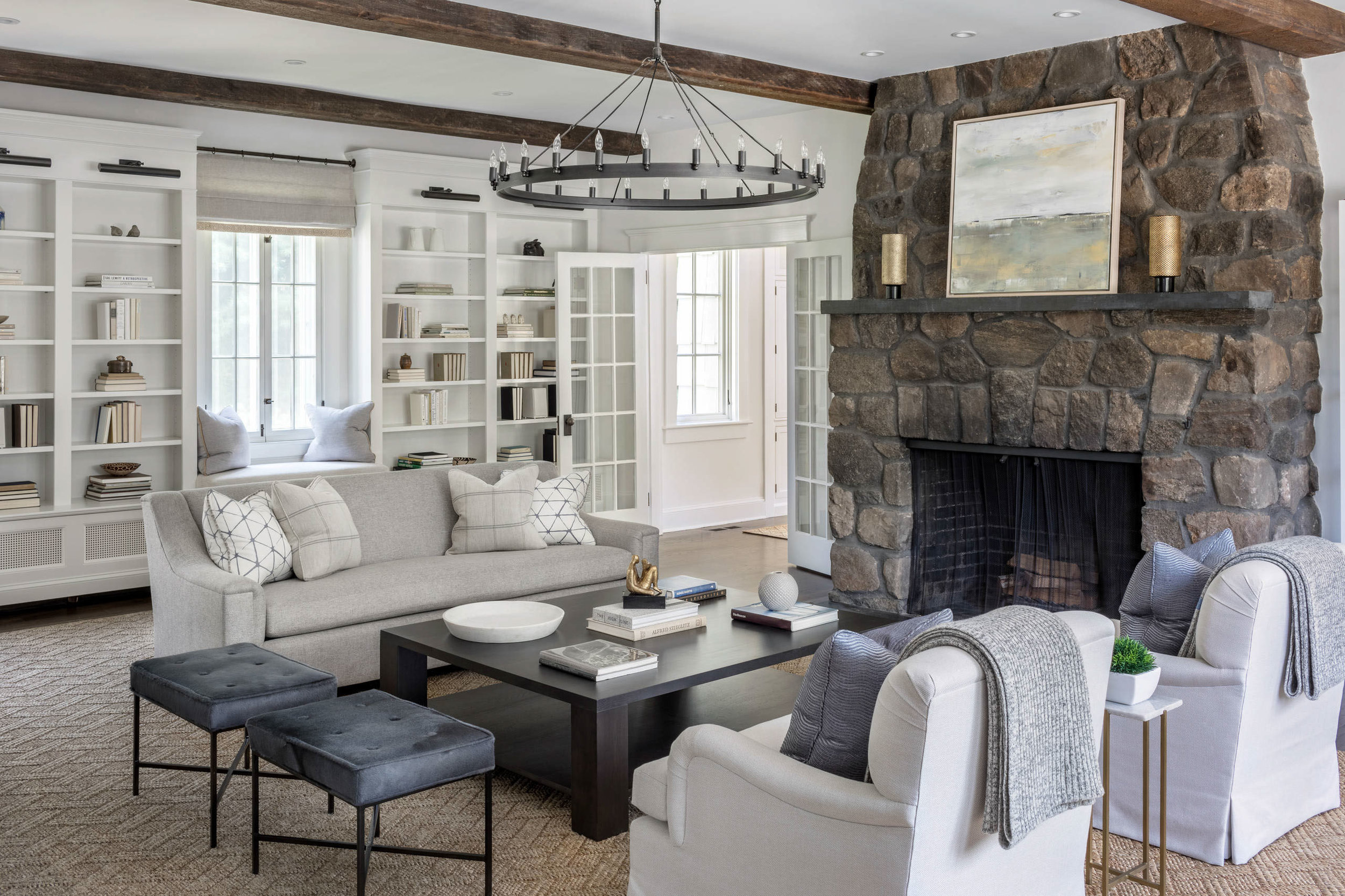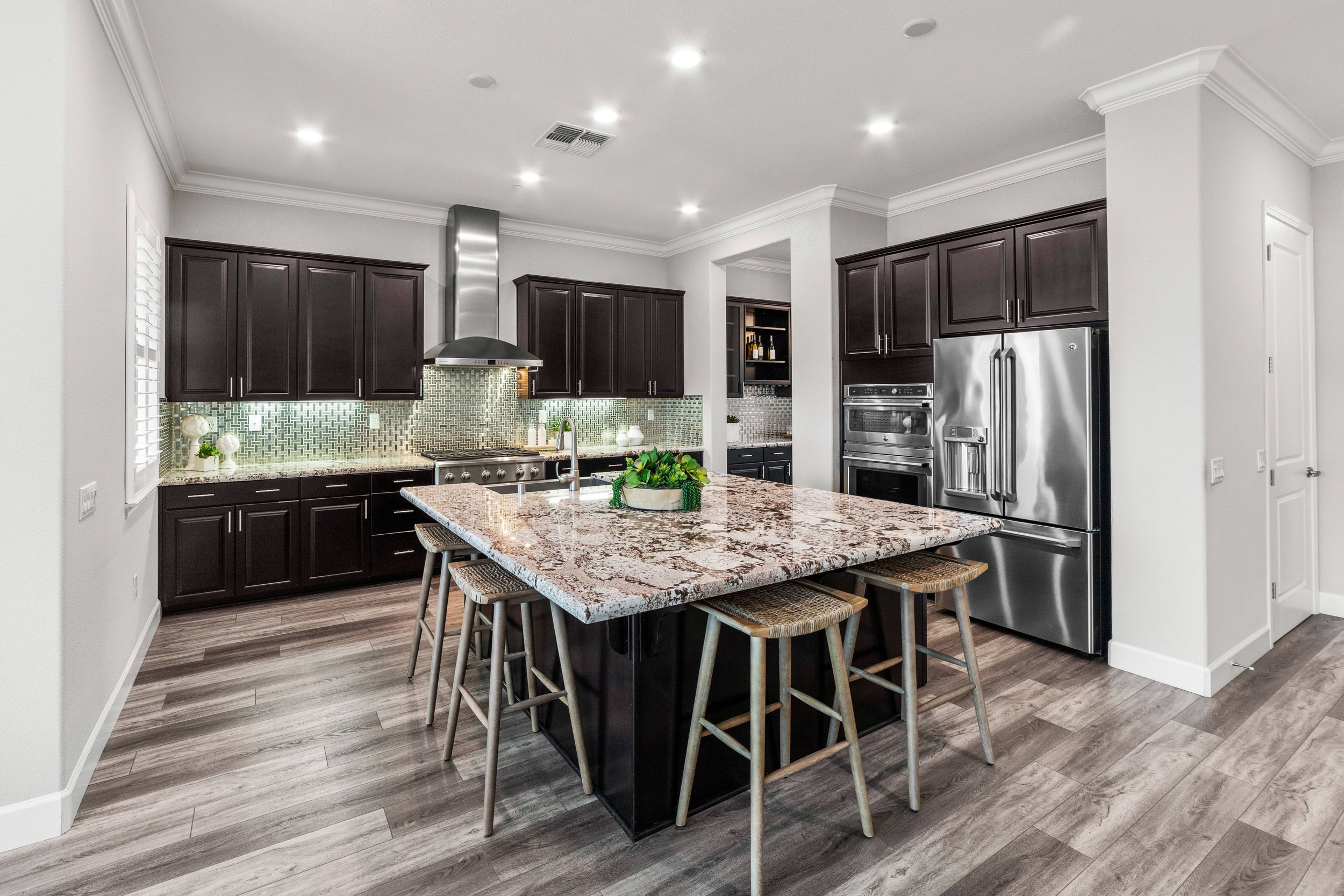
THE MENSER REAL ESTATE GROUP BLOG
Understanding Buyer Broker Agreements: What You Need to Know
If you’re in the market to buy a home, you may have heard about the new laws regarding buyer broker agreements and wondered what that means for you. Many buyers are hesitant to sign these agreements because they’re worried they’ll be stuck with a bad agent or forced to pay fees. But don’t worry—this is not as big of a deal as it sounds, and you’re not locked into anything you’re uncomfortable with.
Here’s a simple breakdown to help you understand these agreements and why they matter.
What is a Buyer Broker Agreement?
A Buyer Broker Agreement is a contract between you (the buyer) and the real estate agent representing you. It outlines the terms of the relationship, including how long the agent will represent you, what services they’ll provide, and whether they’re entitled to compensation if you buy a home.
Since the National Association of Realtors (NAR) introduced new rules, this agreement has become more common, and it’s important to understand what you’re agreeing to. One fundamental change is that signing this contract might require you to pay the broker if you buy any property—even if they weren’t directly involved in that specific purchase.
Why Are Buyers Hesitant?
Many buyers worry that if they sign this agreement and don’t like their agent, they’ll be stuck working with them or forced to pay fees, even if the agent didn’t help them close the deal. But here’s the good news: you can cancel the agreement if things aren’t working out. Agents are not all the same, and you shouldn’t feel obligated to stay with someone who isn’t the right fit for you.
It’s also important to note that when you click on a link on sites like Zillow or Redfin to schedule a home showing, you might be paired with a random agent. These agents might not always have the experience needed to navigate the complexities of the market. With the new laws, signing an agreement with an agent who isn’t a good fit can complicate things, so it’s crucial to do your research—just like you would when selling your house.
How Long Does the Agreement Last?
Most agreements last up to 90 days, but you can end the relationship earlier if you’re unhappy. If you sign an exclusive agreement, the broker is entitled to a commission whether they were directly involved in your purchase or not. If you sign a non-exclusive agreement, the broker is only entitled to compensation if they actively helped you buy the property.
Can You Cancel the Agreement?
Yes! If you accidentally sign with an agent who isn’t a good fit, you can cancel the agreement. In California, per the California Association of Realtors (CAR), if you sign a non-exclusive agreement, the cancellation takes effect immediately upon receipt of a written notice from you or the agent—or on a specified date if one is filled in. If you sign an exclusive agreement, it takes 30 days to cancel, but during this time, the agent is still entitled to compensation if they were involved in helping you find or purchase a home.
Key Points to Look For:
- Exclusive vs. Non-Exclusive: If you sign an exclusive agreement, the agent gets paid no matter what. In a non-exclusive agreement, they only get paid if they have direct involvement in your purchase.
- Broker Involvement: For non-exclusive agreements, the broker must prove they did something to help with your purchase, such as showing you the home, submitting an offer, or helping you analyze the property.
- Continuation Period: Even if you cancel the agreement, the broker might still be entitled to compensation if you buy a home they were involved with within a certain timeframe. They must provide a list of these properties within five days of cancellation for this to apply.
Do Your Research
Signing a Buyer Broker Agreement isn’t something to fear, but it’s essential to understand what you’re getting into. Take the time to research your agent, read reviews, and make sure they have the experience to guide you through the home-buying process. Keep in mind that each brokerage may have its own versions of the buyer broker agreement forms, so it’s important to carefully review the details and ask questions if anything is unclear. Some agreements might have different terms, especially around cancellation rights or continuation periods, so don’t hesitate to ask for clarification before signing.
If you find yourself in a situation where you’re unhappy, rest assured that you have options to move on.
In short, a Buyer Broker Agreement protects both you and your agent. As long as you’re informed and ensure you’ve chosen the right agent, the home-buying process should be smoother and more efficient.
Why You Should Use a Real Estate Professional: Clearing Up the Commission Confusion
In recent months, there's been a lot of buzz surrounding real estate commissions, especially regarding the role of buyer's agents. With all the debate, it's understandable if you need clarification about using a real estate professional when buying a home. Let's explain why having a buyer's agent on your side is beneficial and can save you money in the long run.
The Role of Commission in Real Estate Transactions
First, let's talk about commissions. Typically, in a real estate transaction, the seller offers a commission to both the listing agent and the buyer's agent. This commission is an incentive for buyer's agents to show the home to their clients. It's a system that has worked well for many years, ensuring that sellers get maximum exposure for their homes while buyers receive the professional guidance they need.
It's also important to note that commission has always been negotiable. This flexibility allows buyers and sellers to work out an arrangement that best suits their needs. However, regardless of the specific commission arrangement, the fundamental purpose remains: to ensure that homes are properly marketed and buyers have access to expert representation.
What Happens When a Seller Doesn't Offer Commission?
Now, let's consider what that means for you as a buyer. If a property has fewer potential buyers, the sale price could be much lower, which can be a great deal for you. Even if you end up paying the buyer's agent commission out of pocket, the overall cost might still be less than if the home had sold for a higher price. The savings from the lower sale price could more than offset the commission, making it a financially advantageous situation for you.
Why Most Sellers Still Offer Commission
Despite the recent news making it sound like sellers paying buyers' agents is a thing of the past, the reality is that most sellers are still willing to pay commissions because it directly impacts the traffic their property receives. Historically, in more demanding markets where selling a home is more challenging, both builders and homeowners have increased the commission offered to buyer's agents in hopes of enticing them to bring their clients to view the property.
Any savvy and well-informed seller understands that offering a commission is in their best interest. It incentivizes the real estate community to show the home, increasing the chances of a quicker sale at a favorable price. The real estate community is a tight-knit group, and offering a fair commission helps ensure your property is actively marketed within this network.
Why Using a Buyer's Agent is Essential
Here's where having a real estate professional on your side pays off. A buyer's agent does more than find homes for you to look at. They are your advocate, your negotiator, and your guide through the often complex process of purchasing a home. As a buyer, you want to avoid negotiating against a professional negotiator like the listing agent, whose fiduciary responsibility is to the seller and who is working in the seller's best interest.
Your buyer's agent will help you navigate every step of the process, from understanding the intricacies of the transaction to pointing out unnoticed features or potential faults with a property. They negotiate better sales contract terms, ensuring that you're not only getting the home you want but that the terms of the deal are favorable to you. They also provide access to a curated list of trusted service providers, such as home inspectors, which can make a significant difference in the quality of the services you receive.
Additionally, a buyer's agent improves your knowledge of the search areas, helps expand your search to areas you might have yet to consider, and, most importantly, negotiates a better price for you. Having a professional on your side can shorten the time it takes to find your dream home while ensuring you're making a sound investment.
What Buyers Value in an Agent
When choosing a real estate agent, buyers consistently cite experience, honesty, trustworthiness, and reputation as their top criteria. They value knowledgeable agents who are transparent and reliable in their dealings. Communication is also crucial; buyers appreciate agents who keep them informed through personal calls, text messages, and prompt updates on new listings, price changes, or when a property goes under contract.
The Big Picture: Getting the Best Value
The bottom line is this: while the conversation around commissions might make it seem like you're better off without a buyer's agent, the reality is quite different. A well-represented buyer is more likely to get a better deal, even when commission costs are factored in. By ensuring that the home you're interested in is getting the right amount of attention and negotiation, you're more likely to end up in a better financial position.
In a market where every decision counts, having a real estate professional in your corner is invaluable. They bring expertise, experience, and the ability to help you navigate the complexities of buying a home—ensuring that you find the right property and get the best value for your investment.
So, when considering buying a home, remember that the right agent can make all the difference. The commission structure, which has always been negotiable, is designed to benefit buyers and sellers, helping homes sell for what they're truly worth and ensuring buyers make informed strategic decisions. Keep the noise around commissions from distracting you from the real benefits of professional representation in your home-buying journey.
Factors That Influence Affordability
Lately, you can’t discuss residential real estate without commenting on the affordability challenges that today’s consumers face. There’s no question that properties in El Dorado Hills and other areas are much less affordable today than they were over the past few years, but that doesn’t imply homes are now truly unaffordable. There are 3 factors used to establish home affordability which includes home prices, loan rates, and wages. Here is a closer look at those components.
Home Prices
The latest Home Price Insights report provided by CoreLogic shows that home values have increased by 22% from last March of 2021 to our current month (March 2022). This is one reason affordability has declined over the past year.
Mortgage Rates
While the current global uncertainty makes it difficult to project home loan rates, we do know current rates are almost one full percentage point higher than they were at this time last year. According to Freddie Mac, the average rate for last February was 2.81% whereas this February it was 3.76%. That increase in the mortgage rate also contributes to homes being less affordable than they were last year.
Wages
The one big and positive component within the affordability equation is a rise in American wages. In a recent article by RealtyTrac, Peter Miller addresses that point:
“Prices are up, but what about wages? ADP reports that jobholder incomes increased 5.9% last year but rose 8.0% for those who switched employers. In effect, some of the higher cost to buy a home has been offset by more cash income.”
The National Association of Realtors (NAR) also recently released some data that examines income and affordability. The NAR report provides a comparison of the current median family income versus the qualifying income for a median-priced home in each region of the country. While the figures might range in certain locations within each region, it’s important to note that it was found that in most of the country, homes are still affordable.
In the end, when you think about affordability you must remember that the picture includes more than just home prices and mortgage rates. While they do have a significant impact, wages need to be factored into affordability as well. Because wages have been rising, they’re a big reason that, while less affordable a few years ago, homes are not unaffordable today.
What to Look for in a World-Class Equestrian Estate
When it comes to lifestyle properties, equestrian estates have appealed to luxury homebuyers for centuries. Often grand and historic, they are devoted entirely to enjoying one’s passion for horses. If you’ve ever considered purchasing a property where you can ride, train and care for these beloved animals, these features are essential for an equestrian estate that leaves nothing to be desired.
First-Class Facilities
A well-designed stable with an adequate number of stalls, a wash rack and a tack room for your equipment is perhaps the most important item on the list. Some all-encompassing estates take it a step further, however. On these properties, you’re also likely to find a riding arena and a spacious paddock for the horses to spend time outside.
Riding Trails
Part of the grandeur of equestrian estates is that they’re often built on large tracts of land with their own riding trails. For an equine enthusiast, there’s quite simply no greater luxury than being able to leave their private stable on horseback and leisurely roam the property’s scenic trails. Although not all horse properties enjoy this feature, they’ll likely still have access to nearby trails.
Equestrian Community
Community, of course, is always important. If horses are your passion, then chances are you’ll appreciate being around others who share this. Not to mention, you can expect many important benefits, like an abundance of nearby services and specialists to help with caring for your animals. Equine veterinarians, trainers and nearby supply stores are just a few things that you’ll be thankful for having easy access to.
Ample Accommodations
Lastly, let’s not forget that equestrian estates tend to be used as gathering places. Multiple generations of families and large groups of friends come together at these prized homes to spend quality time away from the hustle and bustle of their everyday lives. For this reason, it’s common to see numerous dwellings on a sprawling equestrian estate, like a manor house, guest house, staff quarters and more.
Why You Should Have a Buyer's Agent
A listing agent represents a seller. If you want to buy a house, find a buyer’s agent to work on your behalf.
An exclusive buyer’s agent will show you any properties that suit your needs, regardless of which company listed them and how much money the agent could make.
A buyer’s agent and seller’s agent will split the commission.
Find a buyer’s agent online or through word of mouth. Look for someone who understands the local market and is a good listener.
If you don’t have a buyer’s agency agreement, the agent represents the seller.
Make sure the contract says the agent has a fiduciary duty to represent your interests.
















